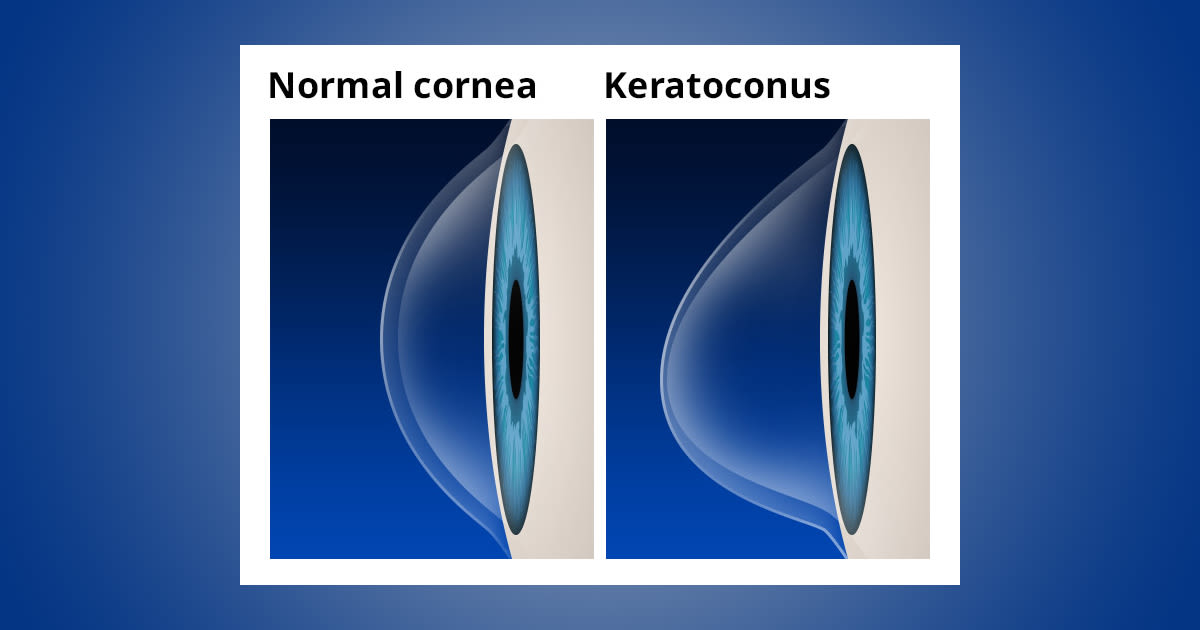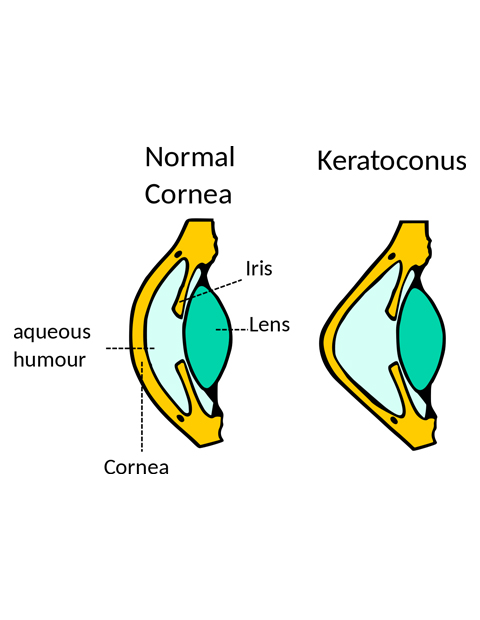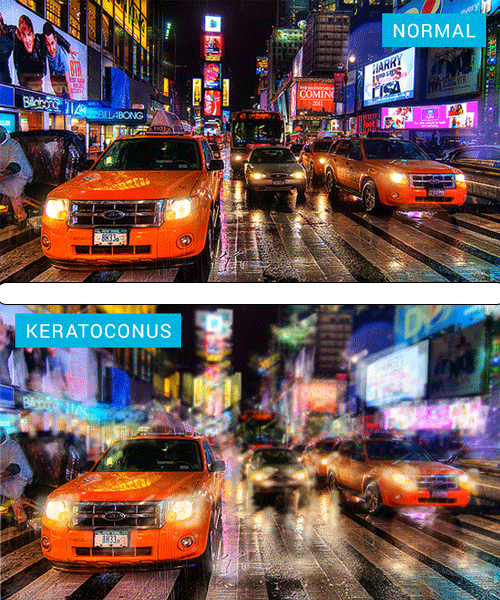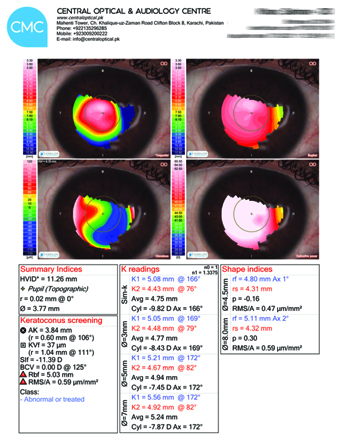
Keratoconus
The bulging Cornea
Embrace Clear Vision, Unhindered by Keratoconus! Schedule a Consultation with our Keratoconus Specialist for a Free Trial of Customized Solutions.
What is meant by Keratoconus?
Keratoconus is a progressive eye disorder characterized by the thinning and bulging of the cornea, which is the clear, dome-shaped outermost layer of the eye that covers the iris and the pupil. This condition causes the cornea to assume a cone-like shape instead of its normal spherical curvature. As a result, the light entering the eye is not properly focused on the retina, leading to distorted and blurred vision.

A cone-shaped cornea results into blurred vision as it deflects light while entering the eye and may cause sensitivity to light and glare. Keratoconus usually affects both eyes, though it often affects one eye more than the other. It generally begins to affect people between the ages of 10 and 25. The condition may progress slowly for 10 years or longer.

In the early stages of keratoconus, vision problems can be corrected by glasses or soft contact lenses. In advanced stages, people having Keratoconus may have to be fitted with Rigid Gas Permeable (RGP) lenses or Advanced types of lenses, commonly known as Scleral Lenses. If the condition progresses to more advanced stage, patients may need a cornea transplant.
A new treatment called corneal collagen cross-linking may help to slow or stop keratoconus from progressing, possibly preventing the need for a future cornea transplant but since it’s not a refractive procedure, corneal collagen cross-linking does not improve Vision or Quality of Life. This treatment may be offered in addition to the vision correction options above.
Symptoms of Keratoconus
Signs and symptoms may change as the disease progresses. They include:
- Blurred or distorted vision
- Increased sensitivity to bright light and glare, which can cause problems with night driving
- A need for frequent changes in eyeglass prescriptions
- Sudden worsening or clouding of vision
- Eye irritation or headaches associated with eye pain
What is the main cause of Keratoconus?
The exact cause is not fully understood, but it is believed to have a genetic component and may be associated with certain environmental and external factors, Like overexposure to sunlight, chronic eye illness, and improper use of contact lens can potentially cause keratoconus. Rubbing the eyes can also facilitate the shape distortion in the cornea, leading to keratoconus.
It typically begins during adolescence or early adulthood and may progress slowly or rapidly over time.
Risk factors
These factors can increase your chances of developing keratoconus:
- Having a family history of keratoconus;
- Rubbing your eyes vigorously;
- Having certain conditions, such as retinitis pigmentosa, Down syndrome, Ehlers-Danlos syndrome, hay fever and asthma
Can someone live a normal life with Keratoconus?
The good news is that it does not have to be this way and that patients with keratoconus can go on to live normal lives just like any other person with good sight. You just need the proper treatment in order to get good vision back.
Diagnosing Keratoconus
Book an appointment at our Specialized Keratoconus Clinic at Central Optical with our Keratoconus Specialist if you experience any of the said symptoms or your eyesight is worsening rapidly, which might be caused by an irregular curvature of the eye. With a quick non-invasive procedure, known as Corneal Topography, we can very easily diagnose Keratoconus.

Managing Keratoconus
While the exact cure for keratoconus is not available, there are several management options, including the use of specialized lenses like Scleral Lenses, Corneal Cross-Linking (CXL), and in severe cases, Corneal Transplant surgery. Regular eye examinations and early diagnosis are crucial for monitoring the condition’s progression and ensuring appropriate treatment to optimize visual outcomes and maintain eye health.
What is the Ideal Treatment option available for Keratoconus Today?
Scleral lenses are the most successful treatment for Patients with Keratoconus.
A scleral lens is a little bigger than a traditional soft contact lens. A Scleral lenses rests on the Sclera (the white part of the eye) distributing its weight over a larger area. New lens materials and high technology manufacturing puts scleral contact lenses at the forefront of Keratoconus treatment.


AOA. Sir I live in islamabad. Do you have these services in islamabad or you recommend any eye specialists to whom I can get my scleral lenses prescription after trial test of scleral lenses for my left eye diagnosed with keratoconus
Walaikumassalam. Yes Mr. Amjad, we offer our services regarding Scleral Lenses at Islamabad Eye Centre.
https://maps.app.goo.gl/xmpavFCv6TeUurnY9
Please visit here and meet with Mr. Khuwaja Nouman.